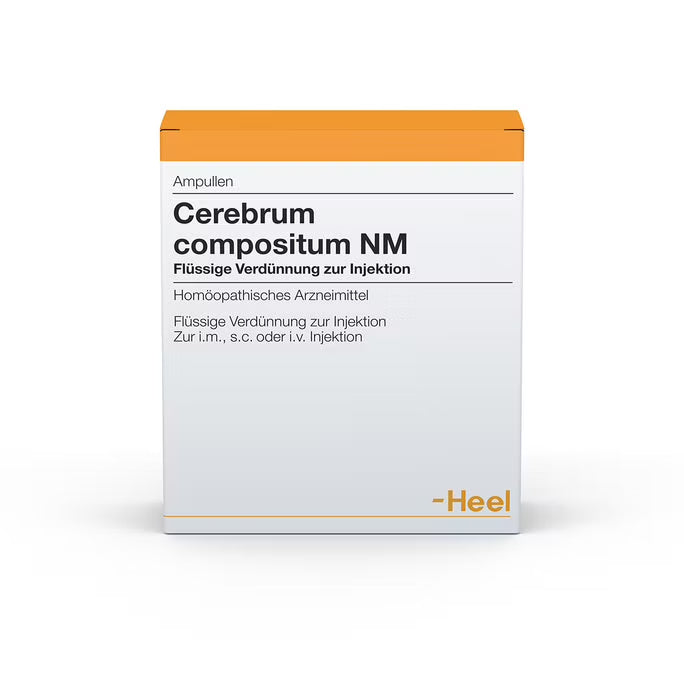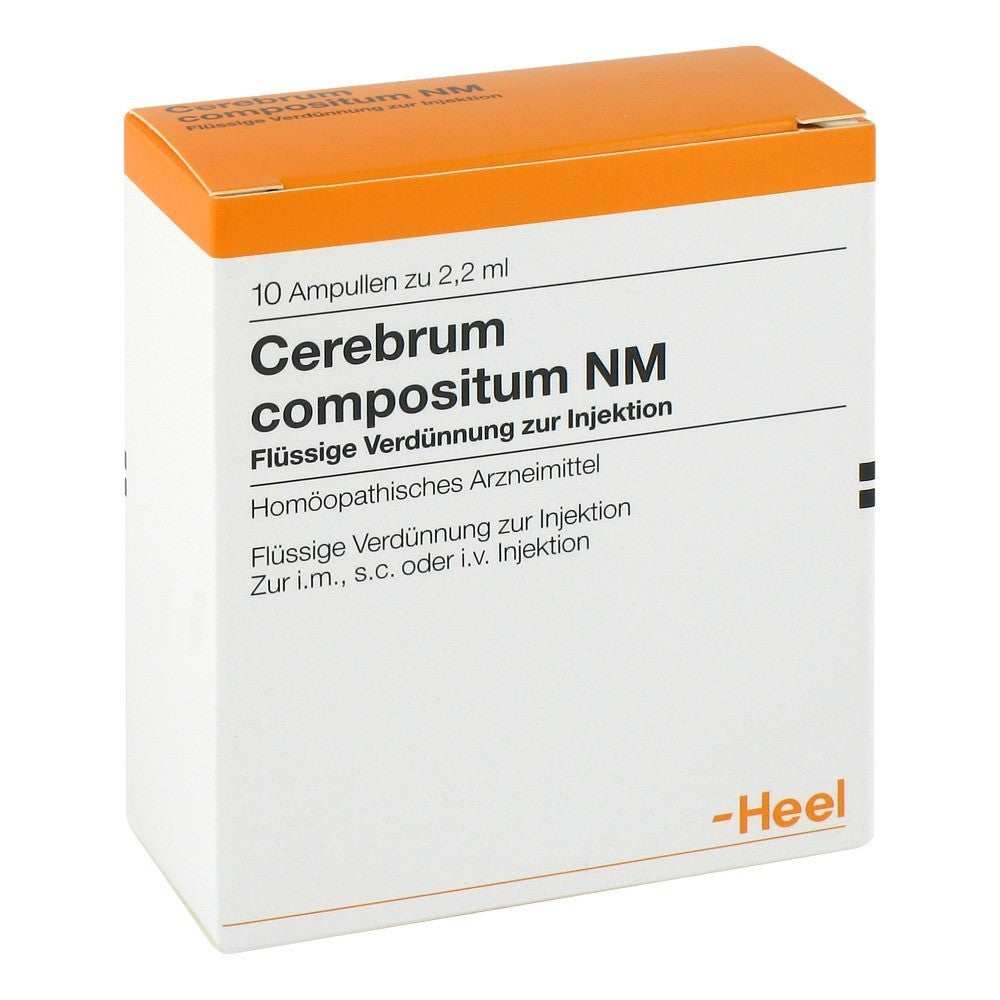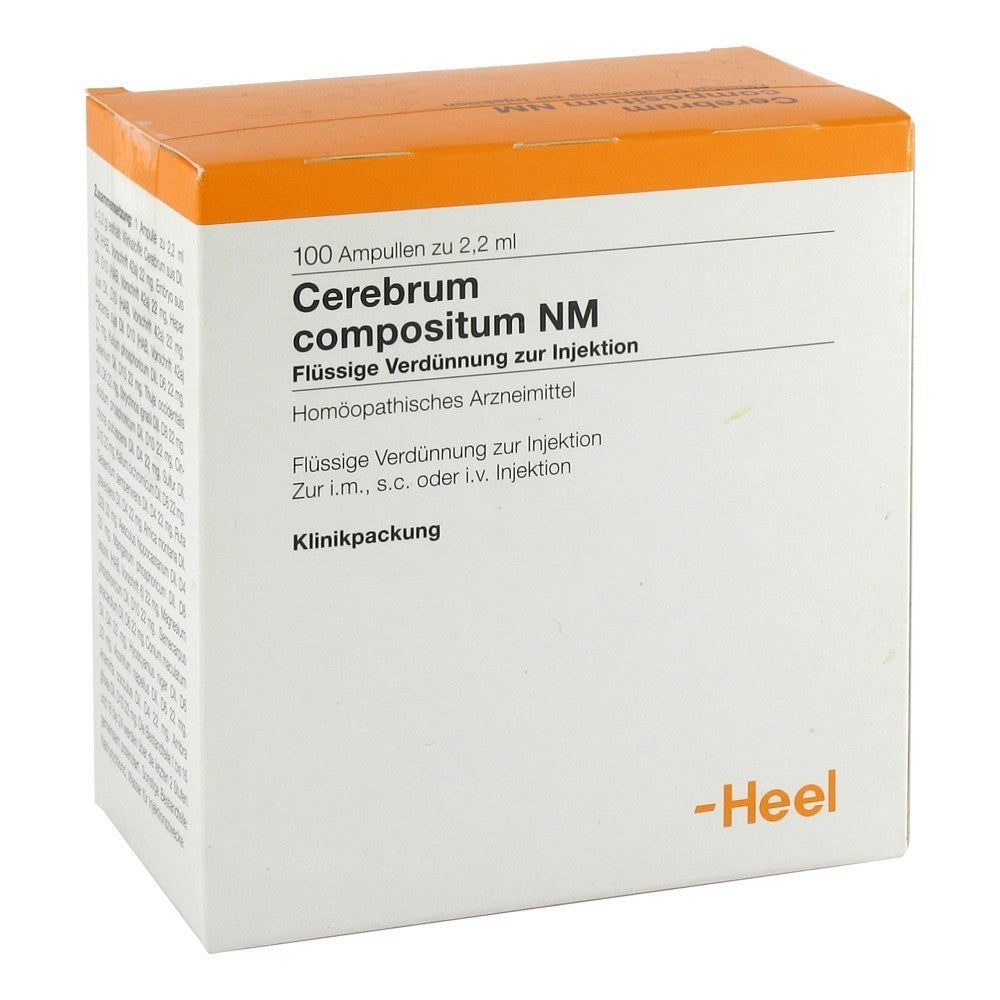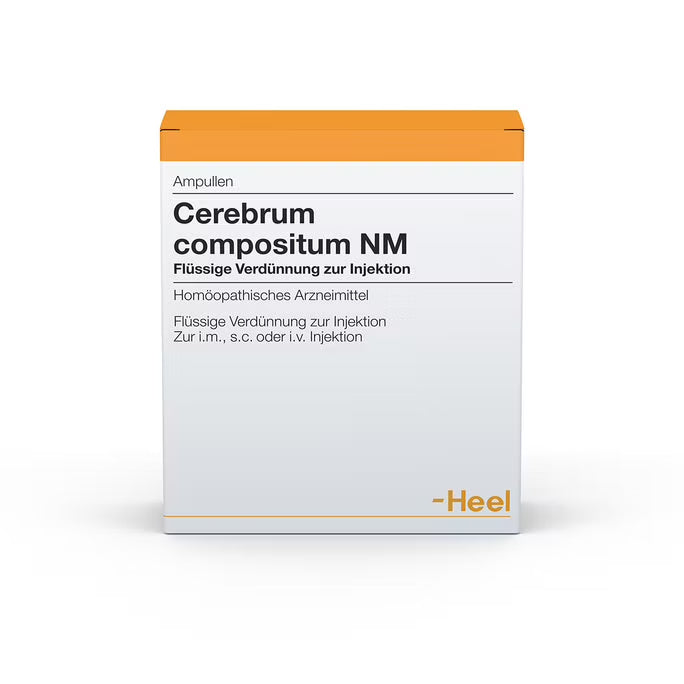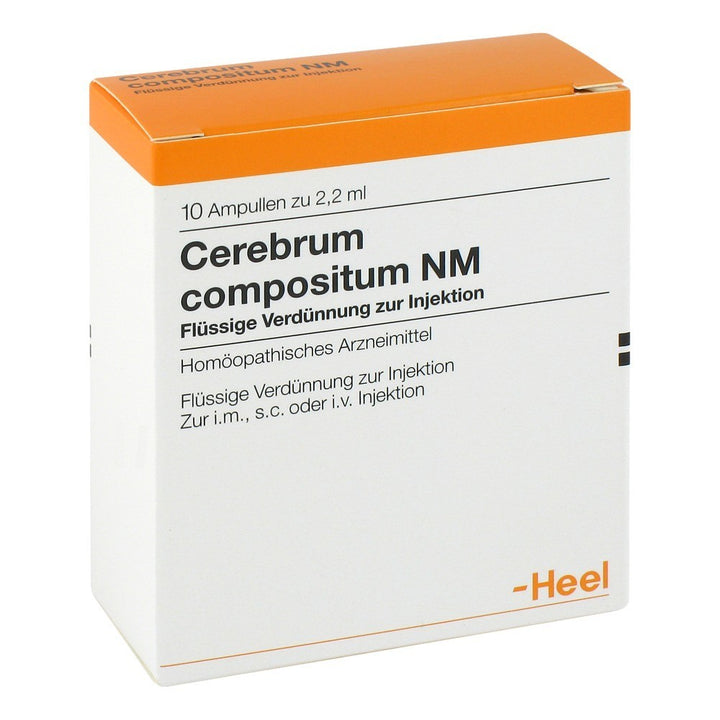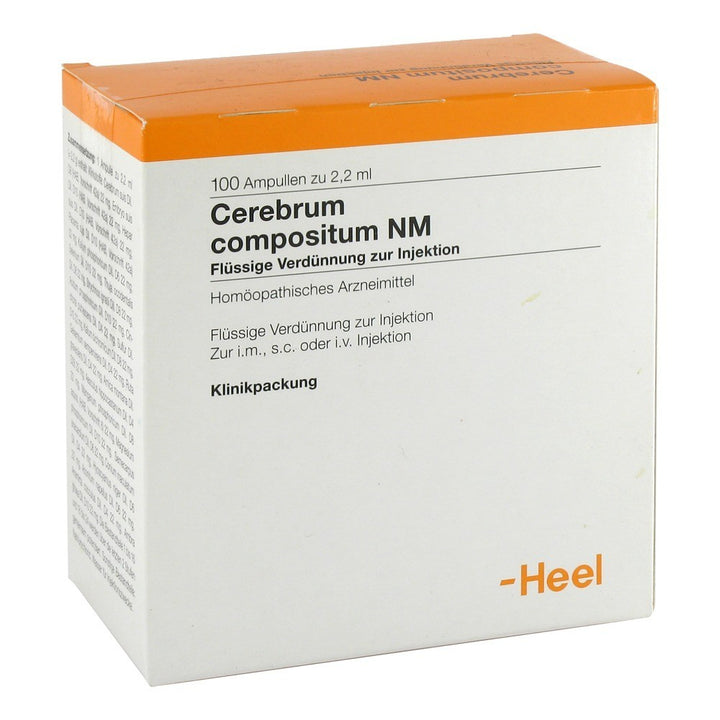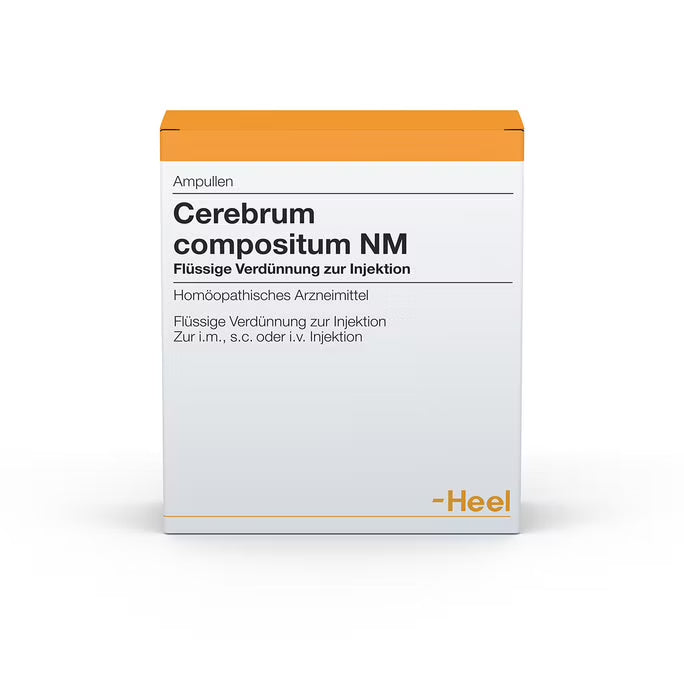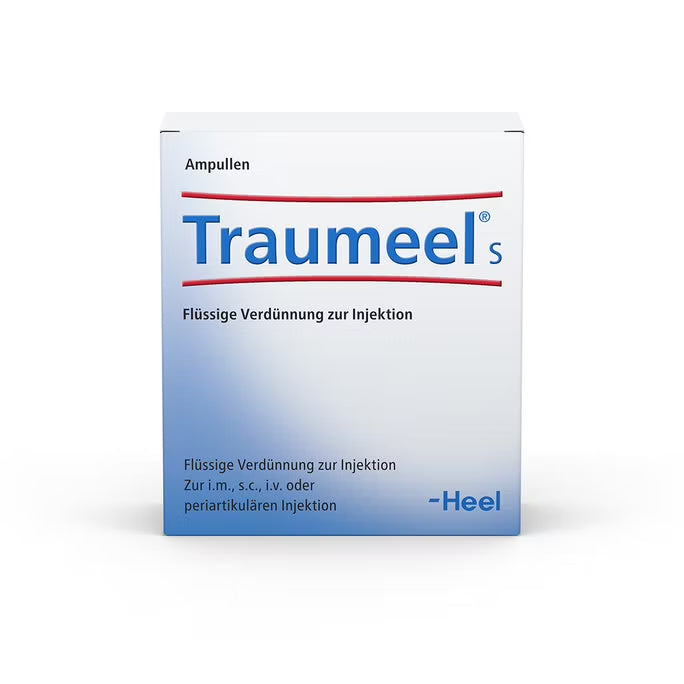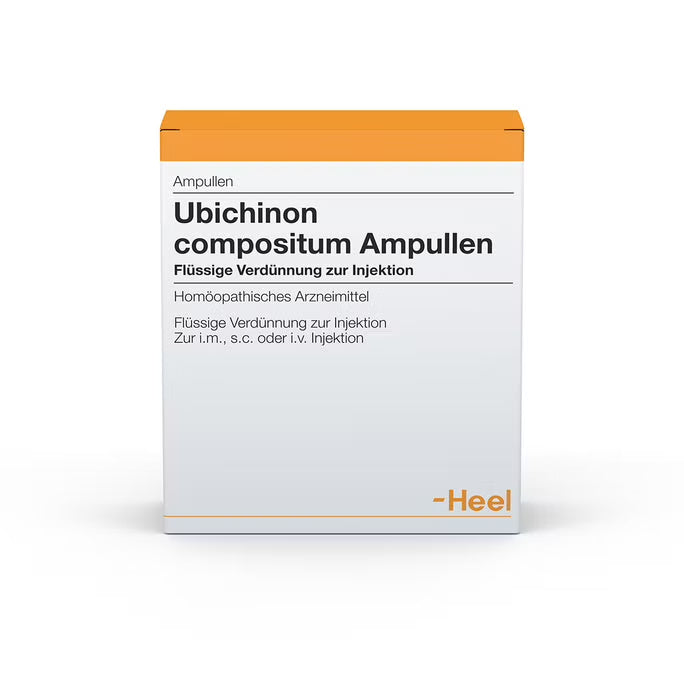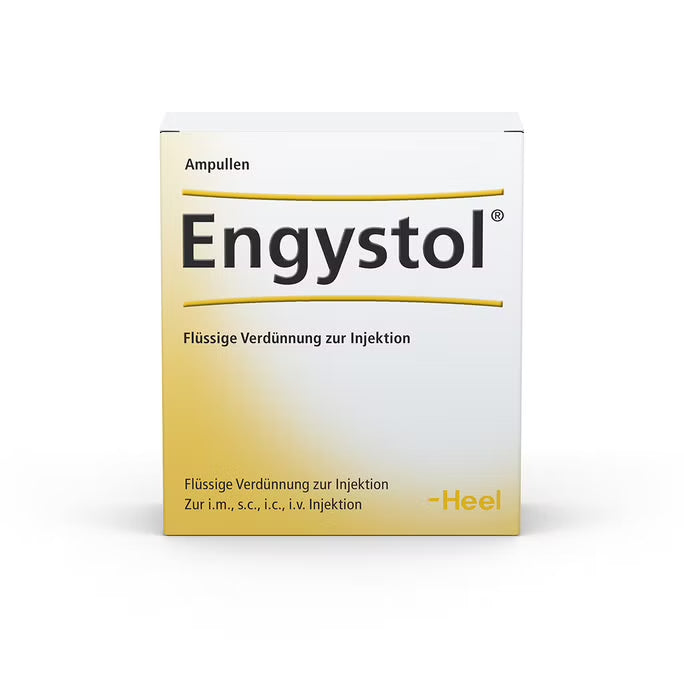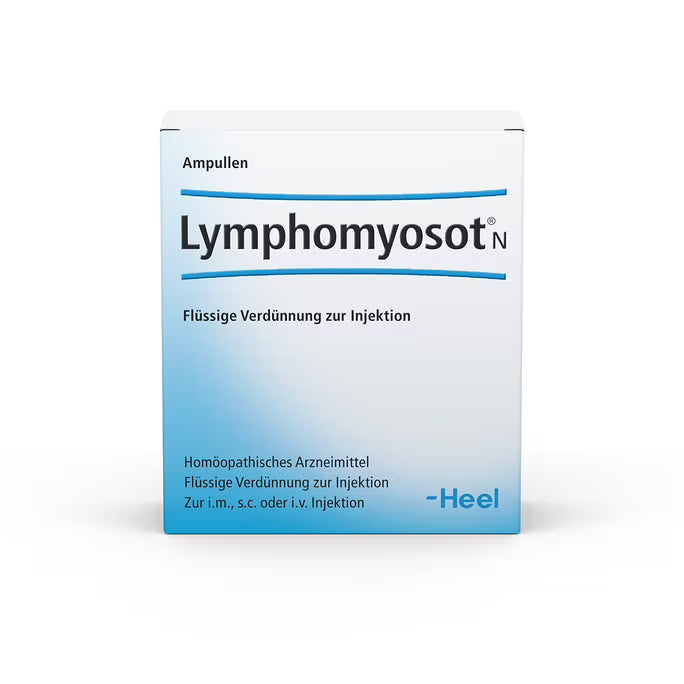(Cerebrum Compositum, sometimes known as Cerecomp)
Indications:
Stimulation of the defence mechanism in dysontogenesis in children, legasthenia, vegetative dystonia, depression, arteriosclerosis, after commotio cerebri, after encephalitis, in neuralgia, states of agitation, amyotrophic lateral sclerosis, multiple sclerosis, Parkinson's disease, deficiency of memory, nervous exhaustion and other geriatric indications.
Dosage:
Solution: In general, 3-1 times weekly 1 ampoule if necessary also
Composition:
Solution: 2.2 ml cont.: Cerebrum suis D 8, Embryo suis D 10, Hepar suis D 10, Placenta suis D 10, Kalium phosphoricum D 6, Selenium D 10, Thuja D 6, Ignatia D 8, Bothrops lanceolatus D 10, Acidum phosphoricum D 10, China D 4, Manganum phosphoricum D 8, Magnesium phosphoricum D 10, Anacardium D 6, Conium D 4, Luesinum-Nosode D 13, Medorrhinum-Nosode D 13, Hyoscyamus D 6, Aconitum D 6, Cocculus D 4, Ambra D 10, Sulfur D 10, Kalium bichromicum D 8, Gelsemium D 4, Ruta D 4, Arnica D 28, Aesculus D 4 22 µl each.
Contraindications: None known.
Side effects: Skin reactions may occur in occasional cases; in such cases, do not continue therapy with this preparation.
Interactions with other medication: None known.
Dosage: Generally, 1 ampoule i.m., s.c., i.d. (if necessary i.v.) 3–1 times weekly.
Package sizes: Packs containing 5, 10, 50, and 100 ampoules of 2.2 ml.
Pharmacological and clinical notes
Individual action:
Cerebrum suis
Conditions of mental exhaustion, disturbances in development, disturbances of cerebral circulation and the associated functional weakness of the brain.
Embryo suis
Revitalization, arteriosclerosis.
Hepar suis
Stimulation of the detoxicating hepatic function.
Placenta suis
Disturbances of the peripheral circulation.
Kalium phosphoricum
Remedy for affections of the cerebral function; improves memory in arteriosclerosis, vertigo, tinnitus aurium.
Selenium
Improvement of the cerebral function; forgetfulness; lack of concentration.
Thuja
Constitutional remedy for deficiency of memory, difficulty in finding words, and other speech disorders.
Ignatia
Exogenic depression; lability of mood; migraine; sensation of globus.
Bothrops lanceolatus
Speech and memory disorders.
Acidum phosphoricum
Physical and mental exhaustion; poor memory.
China
Conditions of exhaustion; remedy for debility; anaemia.
Manganum phosphoricum
Weak memory; conditions of exhaustion with anaemia.
Magnesium phosphoricum
Tendency towards cramps; neuralgia.
Anacardium
Weak memory; vertigo; lack of concentration; hallucinations.
Conium
Vertigo; tremor; speech disorders; weak memory.
Luesinum‑Nosode
Weak memory; fear; depression; serious headaches.
Medorrhinum‑Nosode
Weak memory; nervousness; morning exhaustion; frontal headaches; fear of darkness.
Hyoscyamus
Confused states (delirium tremens, Korsakoff's psychosis); grimacing; sleeplessness.
Aconitum
Conditions of restlessness and anxiety; neuralgia.
Cocculus
Kinetosis; feeling of emptiness and hollowness; great exhaustion and general debility.
Ambra
Vertigo; hyperexcitability; lack of concentration and poor memory.
Sulfur
Reagent; stimulation of enzyme functions; difficulty in falling asleep and remaining asleep through the night.
Kalium bichromicum
Vertigo; frontal headache.
Gelsemium
Headache (pain in the occiput; sensation of a tight band around the head); vertigo; stupor; pain in the eyeballs.
Ruta
Asthenopia with burning of the eyes; headache after overstraining the eyes; antisclerotic agent.
Arnica
Toning action on the arterial vascular system.
Aesculus
Regulates the peripheral circulation and lymph flow; capillary action.
The total action of Cerebrum compositum is directed towards improving cerebral function, including memory, and preventing or improving circulatory disturbances from arteriosclerosis, with consequent reduction of cerebral capacity in both the aged and underdeveloped children showing poor school performance, as well as for stress. In such cases, administration of Hepar compositum, and possibly Testis compositum (males) or Ovarium compositum (females), Populus compositum SR, Hepar compositum (stimulation of hepatic detoxification), Placenta compositum (improvement of peripheral circulation), Rauwolfia compositum (for hypertonia), and Cor compositum (for myocardial weakness and cardiac circulatory disturbances) is recommended.
Preparations such as Tonico-Injeel (physical weakness), Neuro-Injeel (improvement of mental functions), and Lymphomyosot (stimulation of lymphatic drainage) may be interpolated. If there is suspicion of precancerous dermatosis or neoplasm formation, Coenzyme compositum, Ubichinon compositum, Thyreoidea compositum, and possibly Glyoxal compositum (single injection) may be used.
The improvement of cerebral and neural functions achieved with Cerebrum compositum is favourable in a wide variety of organic nervous system diseases, especially in combination with other antihomotoxic therapeutic measures (e.g. Galium-Heel) and for migraine.
The dosage is adjusted according to disease, clinical presentation, and stage of illness. At treatment start: 1 ampoule i.m., s.c., and possibly i.v. every 2 days (3 times weekly); later: generally 1 ampoule i.m. once weekly, alternating with other indicated preparations.



